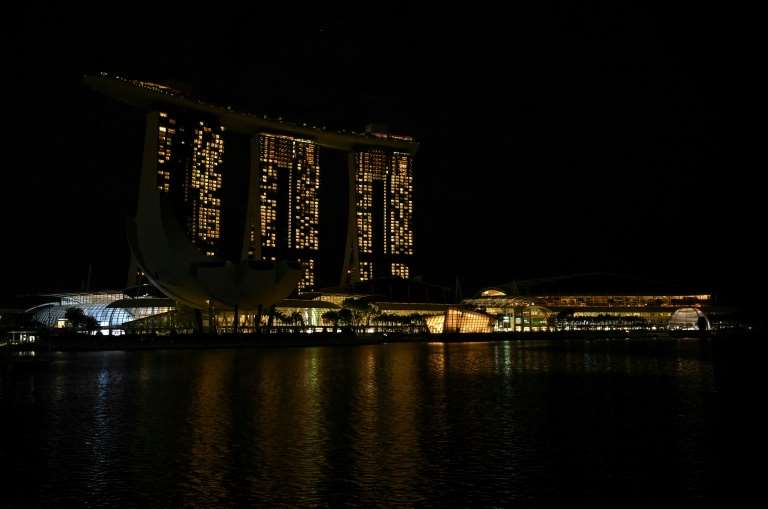Nigerians did not need to dim or switch off any light to join the rest of the world in observing Earth Hour. The country is almost perpetually in darkness due to government’s inefficiency in providing regular electricity supply to the people.
Earth Hour, a worldwide movement organized by the World-Wide Fund for Nature, is an event held annually to encourage individuals, communities, and businesses to turn off non-essential electric lights, for one hour, from 8:30 to 9:30 p.m. on a specific day towards the end of March, as a symbol of commitment to the planet. It began in Sydney, Australia, in 2007, as a lights-off event.
At 8:30 p.m. every year, last Saturday of March, millions of people across the world participate in drawing attentions to the issues facing planet Earth. “But Earth Hour is more than just an Hour for the planet,” says World Wide Fund for Nature, the International Non-Governmental Organization which organizes the event. “it’s a movement for our future. And it’s more than just a symbol of support – it’s a catalyst for urgent change.”
Earth Hour is an annual initiative that calls for action on climate change and the environment. Organizers of Earth Hour used the 2021 edition to highlight the link between the destruction of the natural world and the increasing incidence of diseases such as Covid-19.
Experts believe that widespread deforestation, destruction of the habitats of animals and climate change are accelerating the increase in diseases and natural disasters, warning that humanity may experience more pandemics if the trend is not checked.
“Whether it is a decline in pollinators, fewer fish in the ocean and rivers, disappearing forests or the wider loss of biodiversity, the evidence is mounting that nature is in free fall,” said Marco Lambertini, Director General of the WWF, which organizes Earth Hour. “And this is because of the way we live our lives and run our economies. Protecting nature is our moral responsibility but losing it also increases our vulnerability to pandemics, accelerates climate change, and threatens our food security.”
Ian Tan told AFP that Earth Hour is about more than just saving energy; “it’s more like remembering our impact on the environment.” Though Tan believes one hour is not enough for us to remember that climate change is actually a problem. “I don’t really see Earth Hour as very significant,” he said.
AFP reports that in Hong Kong, people at viewing points above the city watched as lights were dimmed on hordes of closely packed skyscrapers, while in the South Korean capital Seoul, the historic Namdaemun gate went dark.
In Thailand, Bangkok’s ultra-popular Central World mall counted down to 8:30 p.m. before its exterior glass displays went dark for an hour, though inside, the shopping Centre appeared to operate as usual.
In London, AFP says the Houses of Parliament, London Eye ferris wheel, Shard skyscraper and neon signs of Piccadilly Circus were among the landmarks flicking the switches.
“It’s fantastic news that parliament once again is taking part in Earth Hour, joining landmarks across the country and the world to raise awareness of climate change,” said Lindsay Hoyle, Speaker of the House of Commons.
“It shows our commitment to improving sustainability… and that we’re playing our part in reducing energy consumption,” he said.
In Paris, the three stages of the Eiffel Tour progressively went dark but there were few people to watch with the whole country under a 7 p.m. Covid-19 curfew. The giant metal tower has been shut to the public since October 30, due to the pandemic.
In Rome, the lights went out at Rome’s 2000-year-old Colosseum, while police enforcing Italy’s coronavirus movement restrictions checked the papers of a small crowd of onlookers.
Asia had kicked off the event after night fell with the skylines of metropolises from Singapore to Hong Kong going dark, as did landmarks including Sydney Opera House.
The Brandenburg Gate in Berlin and Moscow’s Kremlin on Red Square also joined the annual initiative that calls for action on climate change and the environment.
After Europe, Earth Hour moves west to the Americas with the Empire State Building in New York, the Obelisk of Buenos Aires and the Rio’s Museum of Tomorrow among venues dimming the lights, says AFP.
Nigerians did not need to dim or switch off any light to join the rest of the world in observing Earth Hour. The country is almost perpetually in darkness due to government’s inefficiency in providing regular electricity supply to the people.


